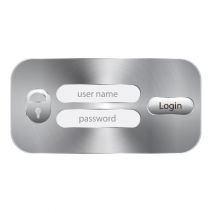 Password security is a common problem that businesses that take their cybersecurity seriously have to deal with on a regular basis. Passwords need to be complex and difficult to guess, but easy to remember at the same time. Unfortunately, these two goals don’t go hand-in-hand, and as such, users often have to sacrifice one for the other. The “passpoem” is a concept born to resolve this issue, though it takes a pretty roundabout path of doing so.
Password security is a common problem that businesses that take their cybersecurity seriously have to deal with on a regular basis. Passwords need to be complex and difficult to guess, but easy to remember at the same time. Unfortunately, these two goals don’t go hand-in-hand, and as such, users often have to sacrifice one for the other. The “passpoem” is a concept born to resolve this issue, though it takes a pretty roundabout path of doing so.
Argentum IT LLC Blog
 One of the most controversial parts of having remote workers is how they access your organization’s network while out of the office. You don’t want them to risk compromising your business’s data, but you also need them to have access to mission-critical applications and information while on the go. Therefore, you need a solution that helps your employees access this information securely without incident, like a virtual private network (VPN).
One of the most controversial parts of having remote workers is how they access your organization’s network while out of the office. You don’t want them to risk compromising your business’s data, but you also need them to have access to mission-critical applications and information while on the go. Therefore, you need a solution that helps your employees access this information securely without incident, like a virtual private network (VPN).
 How much does your organization spend on cybersecurity every year? It’s a well-known fact that the Internet houses an incredible amount of threats that consistently pose a significant danger to organizations, so it’s expected that businesses will shell out to keep them away. However, large businesses with over 1,000 employees spend an average of approximately $15 million annually to protect their data. Clearly, cybersecurity isn’t a joke, and your business should take it seriously too.
How much does your organization spend on cybersecurity every year? It’s a well-known fact that the Internet houses an incredible amount of threats that consistently pose a significant danger to organizations, so it’s expected that businesses will shell out to keep them away. However, large businesses with over 1,000 employees spend an average of approximately $15 million annually to protect their data. Clearly, cybersecurity isn’t a joke, and your business should take it seriously too.
 Mobile devices in the workplace are a complex conundrum that many organizations don’t know how to face properly. On one hand, they allow workers to stay ahead of their schedules, and let them stay productive even when they’re not in the office. On the other hand, they present a serious security risk that needs to be addressed. How does your business handle mobile devices in the workplace?
Mobile devices in the workplace are a complex conundrum that many organizations don’t know how to face properly. On one hand, they allow workers to stay ahead of their schedules, and let them stay productive even when they’re not in the office. On the other hand, they present a serious security risk that needs to be addressed. How does your business handle mobile devices in the workplace?
 A recent trend in cybersecurity is the omnipresent threat of ransomware and distributed denial of service attacks (DDoS). With hackers out to get you and your business, you need to stay updated on how to take the fight to these extortion masters. Unfortunately, victims who have become targets of ransomware, DDoS attacks, and other kinds of threatening hacker activity, often feel that “paying the piper” is the best way to resolve the issue. Well, we have news for you: it isn’t.
A recent trend in cybersecurity is the omnipresent threat of ransomware and distributed denial of service attacks (DDoS). With hackers out to get you and your business, you need to stay updated on how to take the fight to these extortion masters. Unfortunately, victims who have become targets of ransomware, DDoS attacks, and other kinds of threatening hacker activity, often feel that “paying the piper” is the best way to resolve the issue. Well, we have news for you: it isn’t.
 We write about cyber security all of the time, and for good reason. You need to be sure that your organization’s defenses are bulletproof, or at least optimized for maximum security. A recent debacle in the United States serves as a reminder that even high-level, super-secret government accounts can be hacked, like this story from the Central Intelligence Agency (CIA).
We write about cyber security all of the time, and for good reason. You need to be sure that your organization’s defenses are bulletproof, or at least optimized for maximum security. A recent debacle in the United States serves as a reminder that even high-level, super-secret government accounts can be hacked, like this story from the Central Intelligence Agency (CIA).
 How overwhelming is the amount of spam and junk mail you receive on a regular basis? Are you able to effectively navigate your inbox without wasting time on unimportant messages? If you’re a user of Gmail, you now have some tools available to you by default that can help you in the war on spam. You can block specific users and even unsubscribe from email campaigns, allowing you to take back time previously spent cleaning up your inbox.
How overwhelming is the amount of spam and junk mail you receive on a regular basis? Are you able to effectively navigate your inbox without wasting time on unimportant messages? If you’re a user of Gmail, you now have some tools available to you by default that can help you in the war on spam. You can block specific users and even unsubscribe from email campaigns, allowing you to take back time previously spent cleaning up your inbox.
 The social media revolution has taken the world by storm, so much in fact that some people are completely at the mercy of their smartphones. However, the dark side of social media, especially Facebook, grows more apparent every day, especially when it comes to both cybersecurity and personal privacy. Are you sure that your Facebook settings aren’t giving away a little too much of your information to the powers that be?
The social media revolution has taken the world by storm, so much in fact that some people are completely at the mercy of their smartphones. However, the dark side of social media, especially Facebook, grows more apparent every day, especially when it comes to both cybersecurity and personal privacy. Are you sure that your Facebook settings aren’t giving away a little too much of your information to the powers that be?
 It’s been two years since the world was introduced to CryptoLocker, a particularly-nasty ransomware that encrypts a computer’s data while giving the user a deadline to pay a ransom for the encryption key, or else have their data destroyed. What we’re seeing now is that the reach of CryptoLocker is extending beyond the average PC user; even gamers are getting owned by Cryptolocker.
It’s been two years since the world was introduced to CryptoLocker, a particularly-nasty ransomware that encrypts a computer’s data while giving the user a deadline to pay a ransom for the encryption key, or else have their data destroyed. What we’re seeing now is that the reach of CryptoLocker is extending beyond the average PC user; even gamers are getting owned by Cryptolocker.
 Thieves stealing mobile devices like laptops and smartphones have reached epidemic proportions. In fact, 2013 statistics from Consumer Reports and LoJack show that two million laptops were stolen that year, along with three million handsets. Translation; it’s way more likely for your mobile device to be stolen than you probably realize.
Thieves stealing mobile devices like laptops and smartphones have reached epidemic proportions. In fact, 2013 statistics from Consumer Reports and LoJack show that two million laptops were stolen that year, along with three million handsets. Translation; it’s way more likely for your mobile device to be stolen than you probably realize.
 Every business executive knows the struggle of employee turnover. Your employees might come and go, but your data is one thing that you can’t afford to lose from your business. You might feel that you can trust all of the employees who have put in years of effort to ensure your organization stays afloat, but you may be surprised to learn that a significant number of them will probably leave your company with at least some corporate data.
Every business executive knows the struggle of employee turnover. Your employees might come and go, but your data is one thing that you can’t afford to lose from your business. You might feel that you can trust all of the employees who have put in years of effort to ensure your organization stays afloat, but you may be surprised to learn that a significant number of them will probably leave your company with at least some corporate data.
 Your organization is constantly at risk of being attacked by malicious entities. This is a fact that modern businesses have to live with. If this is the first time you’re seriously contemplating cyber security, you need to take all potential options into account; including the worst-case scenario, and how you would combat it.
Your organization is constantly at risk of being attacked by malicious entities. This is a fact that modern businesses have to live with. If this is the first time you’re seriously contemplating cyber security, you need to take all potential options into account; including the worst-case scenario, and how you would combat it.
 With plenty of new features to throw around, Windows 10 is shaping up to be quite the operating system. One feature that seems to have fallen off of everybody’s radar (so far) is Windows Hello, a brand new way to authenticate your PC login. By taking advantage of biometric scanning, your computer will let you log in just by looking at your face.
With plenty of new features to throw around, Windows 10 is shaping up to be quite the operating system. One feature that seems to have fallen off of everybody’s radar (so far) is Windows Hello, a brand new way to authenticate your PC login. By taking advantage of biometric scanning, your computer will let you log in just by looking at your face.
 In this day and age, a password isn’t enough to keep your accounts secure from attempted hacks. Passwords can be cracked as easily as anything. A lot of businesses have moved to two-factor authentication in order to preserve their data. There are several ways of using this for your business, but a new startup called BioCatch is developing an authentication procedure which looks at your mouse activity.
In this day and age, a password isn’t enough to keep your accounts secure from attempted hacks. Passwords can be cracked as easily as anything. A lot of businesses have moved to two-factor authentication in order to preserve their data. There are several ways of using this for your business, but a new startup called BioCatch is developing an authentication procedure which looks at your mouse activity.
 It might seem like the obvious reason for hacks and data loss is due to technology being unpredictable, but in all reality, it’s important to remember that some of the problems we experience with technology come from the people operating it. To this end, it’s important to realize that the people operating technology can also protect themselves from hackers.
It might seem like the obvious reason for hacks and data loss is due to technology being unpredictable, but in all reality, it’s important to remember that some of the problems we experience with technology come from the people operating it. To this end, it’s important to realize that the people operating technology can also protect themselves from hackers.
 Network security entails a ton of different procedures, and it can be easy to lose track of what you’ve already implemented, and what still needs to be done. Instead of worrying about keeping your business’s confidential data safe, know with certainty that it’s as secure as possible by following our security checklist.
Network security entails a ton of different procedures, and it can be easy to lose track of what you’ve already implemented, and what still needs to be done. Instead of worrying about keeping your business’s confidential data safe, know with certainty that it’s as secure as possible by following our security checklist.
 When you think of the Internet of Things, does your mind immediately wander into the realm of connected devices that change the way we interact with each other? Or, does it consider the security issues that can potentially become a threat to your entire network and technology infrastructure? Hopefully it’s a little of both, with an emphasis placed on security.
When you think of the Internet of Things, does your mind immediately wander into the realm of connected devices that change the way we interact with each other? Or, does it consider the security issues that can potentially become a threat to your entire network and technology infrastructure? Hopefully it’s a little of both, with an emphasis placed on security.
 Just like Silk Road (the illegal online black market designed to smuggle drugs around the world), there exists an online trade for zero-day exploits. Unsurprisingly, hackers find it exceptionally lucrative to sell these exploits for profit. Now, there’s a new marketplace where hackers can get their hands on these vulnerabilities, and it’s all thanks to the anonymity of the Darknet.
Just like Silk Road (the illegal online black market designed to smuggle drugs around the world), there exists an online trade for zero-day exploits. Unsurprisingly, hackers find it exceptionally lucrative to sell these exploits for profit. Now, there’s a new marketplace where hackers can get their hands on these vulnerabilities, and it’s all thanks to the anonymity of the Darknet.


